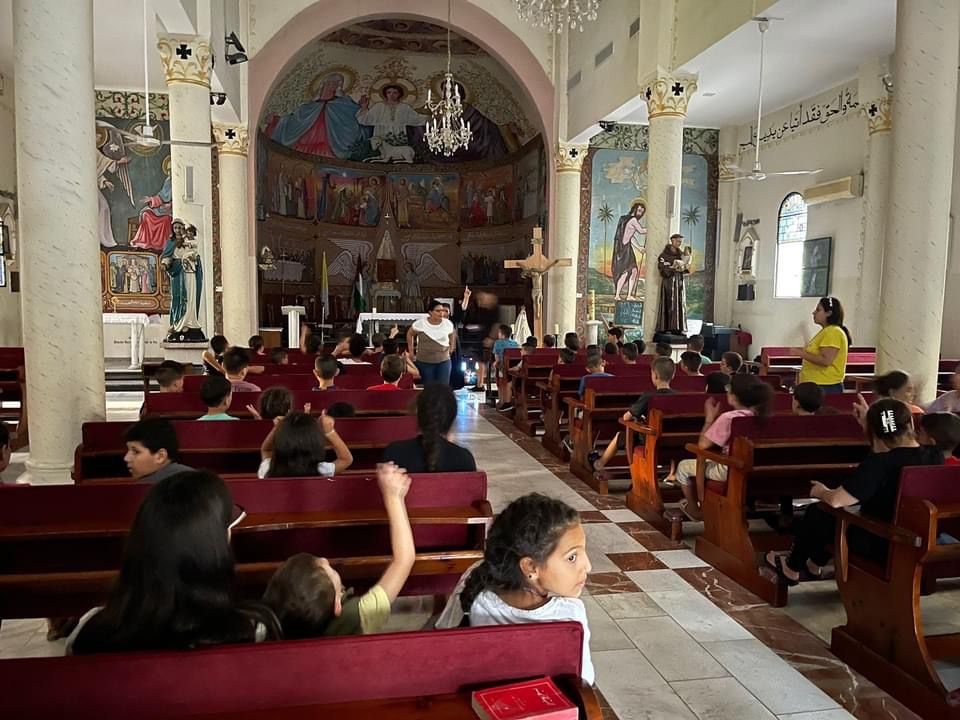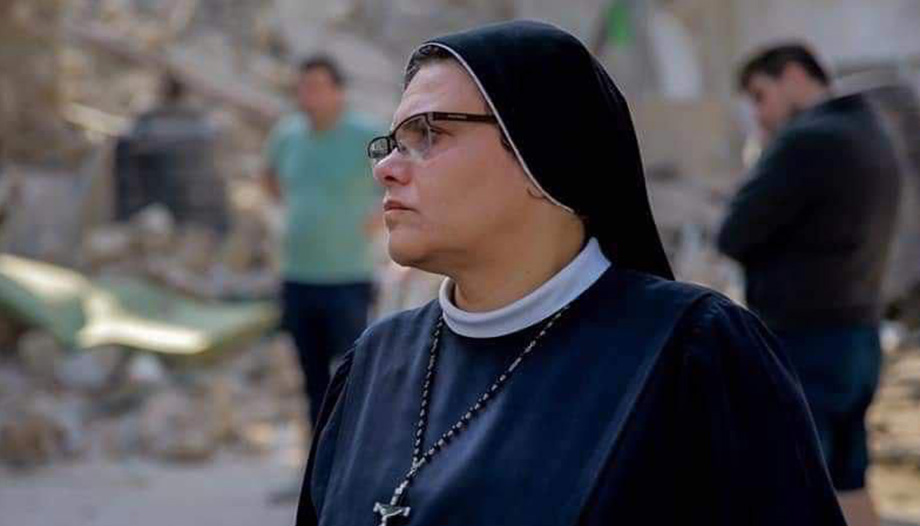Sister Nabila goes out from time to time. If, even for a moment, the shelling gives her a break, she pokes her nose out of the parish of the Holy Family and walks with her heart in her throat through the devastated and ghostly streets. Buildings reduced to a pile of rubble, blood and death.
Gaza no longer exists, or almost does not exist.
Nabila Saleh's pace is fast. The nun of the Congregation of the Rosary of Jerusalem knows that staying outside, going in search of food or checking that the school where she taught until a few weeks ago with her companions is not being looted and vandalized, could also mean not returning to the only Latin church in the city, which has become a refuge for 600 Christians. Poor Christians who have lost everything, no longer have a home, often not even children. And the children no longer even have parents.
"They are afraid. They have in their eyes the images of the Greek Orthodox parish hit by bombs. Eighteen Christians died that day and among them were eight minors. The wounded were taken in here by us," Sister Nabila tells Omnes.
Children also welcomed
In the group of 600 desperate people there are also 100 children, many of them disabled and in need of special and continuous care. These are the children cared for by Mother Teresa's nuns, who have found accommodation with elderly people who look after them all day long.

"Here we need everything," explains the nun, "because we lack food, water, medicine. We don't have any more fuel: we have enough gas oil left for one more week and then we don't know what will happen. The situation is very difficult, with the bombings we are risking our lives every minute".
No place is safe
Sr. Nabila's account becomes more stark when she reveals that the school in the town that her congregation runs had welcomed Muslim refugees into its classrooms at the beginning of the war, but then "we had to abandon everything because the school is close to a hospital behind which there is a Hamas military post and the shelling had intensified in that same area."
Fortunately, given the impossibility of reaching the hospital, there are four doctors at the Sagrada Familia who take care of the wounded. And they do it tirelessly and with great difficulty.
Hope does not die
The Latin parish in Gaza could be considered a real refugee camp. To run it with love and devotion there is an almost exclusively female group, says the nun: "Three sisters of the Congregation of the Rosary, two sisters of the Incarnate Word and three sisters of Mother Teresa. Then there is a religious, Father Iusuf, parochial vicar".
The parish priest, Father Gabriele Romanelli, was trapped in Jerusalem when the Strip was closed, but he never misses an opportunity, even from a distance, to encourage and console his faithful. "The people - adds Sister Nabila - have not lost hope. They attend the two daily Masses celebrated in our church and pray the Holy Rosary with fervor".
The Pope's closeness
The person who answers the phone when Pope Francis calls - now almost every day - to the parish to inquire about the situation, is usually Nabila herself. "We - she reveals - tell him everything that happens here. Talking to him and knowing that he is praying for us gives us courage and strength to go on".
The people, says the nun, "when they know that the Pope has called, they thank God. They live all this with great joy.








